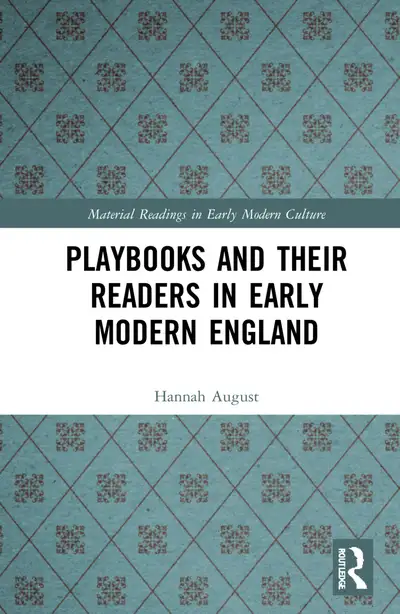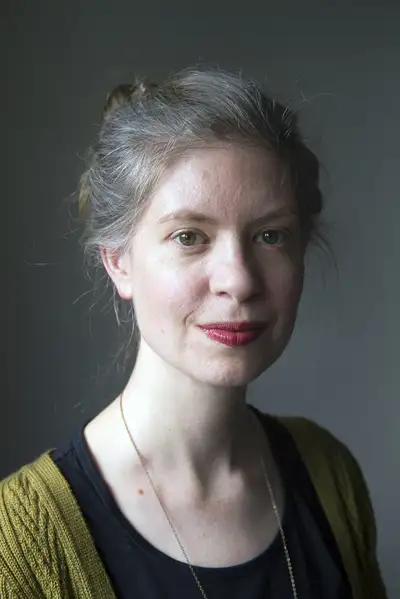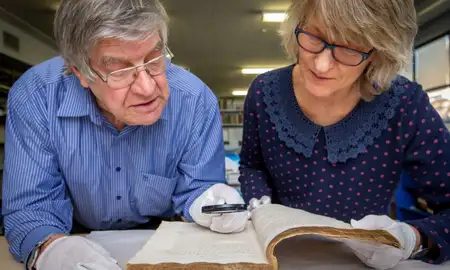
The book is an examination into how and why people in 16th and 17th century England read plays at a time when the most popular leisure reading genres were poetry and drama.
Dr August was inspired to write on the subject while completing her master’s in Shakespearean Studies which was co-taught by King’s College London and the Globe Education department at Shakespeare’s Globe, the reconstructed early modern theatre on London’s Bankside. During her studies, there was a focus on 16th and 17th century audiences and their responses to plays that would have been performed in the original Globe.
“I became intrigued by the fact that the only reason we have any of Shakespeare’s plays today, or those of his contemporaries, is because the scripts were printed to be read. Up until the end of the 17th century, the novel as a genre didn’t really exist in England, so poetry and plays were what was being read for leisure. There hadn’t been much investigation into who these playreaders were, or why they might have chosen to read a play and what their responses were.”
These questions became central to her PhD thesis which after additional research has become the book Playbooks and their Readers in Early Modern England.

Playbooks and their Readers in Early Modern England
Dr August’s book explores the class and gender of playreaders and demonstrates that plays were a popular genre that appealed to a significant portion of the literate population at the time.
“By closely examining the printed ‘paratextual’ material of 400-year-old playbooks – such as their title pages and preliminary addresses to the reader – it establishes the range of reasons playwrights and publishers thought readers might have for buying and reading plays. The paratextual material served to generate expectations in readers about what they were about to read,” Dr August says.
“The book also looks at manuscript evidence in surviving playbooks from the period, the marks, annotations, and marginalia left by early readers, to show that readers didn’t always respond to plays in the way playwrights and publishers thought they would.”
Dr August hopes that this book will encourage readers to think differently about what it means to read a play, both now and in the past.
“It’s clear that for early readers of plays by Shakespeare and his contemporaries, there wasn’t a strong sense that playbooks were scripts for future performances or records of past performance. They were repositories of witty language that could be reused in playreaders’ speech or writing, and in some cases, could offer up some pretty bawdry scenes and exchanges that young men in search of imaginative titillation could focus on.”
The findings in Dr August’s work move away from past approaches of reading early modern plays by looking for traces of the original performance in the text. Instead, it encourages readers to consider the printed play as having its own existence independent from the stage. She says this is a useful stance to convey to the distance students in her Shakespeare course who might not be able to go and see plays from this period performed.
Fulfilling her teaching duties as a lecturer and trying to write the manuscript during a pandemic had its challenges, Dr August says.
“The pandemic meant I couldn’t go through with my planned semester of research leave in 2021 to go check things in various overseas libraries. During the final stage of the writing process, I had to rely on people I’d never met at institutions across the globe to help me check copies of plays for print variants or early ownership inscriptions. It can feel quite lonely working in a disciplinary area that has its main research centres overseas, so I was grateful for the help and support those international colleagues offered as I was readying the book for publication.”
While the evidence in this book has been drawn from Northern Hemisphere archives, there are numerous early modern playbooks that have made their way into public collections in Aotearoa New Zealand and Australia that Dr August is keen to comprehensively examine and catalogue.
“I’ve recently begun a collaboration with a colleague at the University of Newcastle to inspect these copies with the intention of building a database that will showcase Australasia’s 17th century printed drama to the rest of the world. It will help us interrogate how and why these rare books ended up here, and who they’ve been owned and read by throughout their 400-year history.”
Dr August is a senior lecturer in English in the School of Humanities, Media and Creative Communication who joined Massey in 2017. She transferred to the Manawatū campus from Auckland in 2021 to be closer to friends and family. Originally from Dunedin where she studied English and Classics, she completed her master’s and PhD at King’s College London.

Dr Hannah August
Related news
Love of literature thriving in digital age - Shakespeare man
A preoccupation with digital media does not mean reading books is off the menu for youth - that's the view of Massey University Shakespeare specialist Dr Bill Angus.

17th century manuscript available for viewing at Massey’s library
For several years the nondescript cardboard file-box lay on a shelf gathering dust, largely ignored and overlooked by the office's occupants. That all changed one day in 1977, when Dr John Ross, a lecturer in the English Department, decided to peep inside it.

New book highlights New Zealand’s great forgotten First World War victory
Gallipoli was a disaster, the Somme was a blood bath, and Passchendaele was a massacre. Yet a resounding victory in 1917 that New Zealand was involved in has long been forgotten.
